The Role of Universities in Innovation and Regional Development
Implications for Regional Development, Innovation and Higher Education Policy
Date and time
Summary
With the transition to the knowledge economy, regions are increasingly looking to universities as sources of knowledge for innovation and growth. Meanwhile, universities have increasing ambitions to contribute to development, as reflected in the increased attention to the third mission and the impact of research. However, the role of universities in regional innovation and development processes is multi-faceted and play out across all of the universities’ missions and in interaction with industry, government and broader societal stakeholders across various scales.
The Role of Universities in Innovation and Regional Development (RUNIN) is the topic of a Marie Skłodowska-Curie Actions Innovative Training Network of 14 Early-Career Researchers across seven universities and nine regional development agencies in Europe from 2016 to 2021. The 14 PhD projects include both the perspective of universities as well as that of the regions, creating a broad body of new knowledge on the relationship between them.
The project is now ending and the network invites you to a two hour webinar on 25th February, 11:00 - 13:00 CET (10:00 - 12:00 GMT) with a mix of presentations and facilitated discussions, to learn about the results of the project and their implications for innovation, regional development and higher education policy.
The network focuses on how universities can contribute to innovation, regional development and policy through four main themes:
- People and networks: How do universities attract talent to their regions and develop networks between academics and regional industries?
- Policies and interventions: How do universities collaborate with regional authorities to develop regional innovation policy?
- Places and territories: How do the role of universities vary across different regional contexts and different scales of interaction?
- Practices and governance: How are universities changing their practices in order to further their roles in innovation and regional development?
For more information about the project, please visit its website: runinproject.eu
![]() This project has received funding from the European Union’s Horizon 2020 Research and Innovation Programme under grant agreement No 722295.
This project has received funding from the European Union’s Horizon 2020 Research and Innovation Programme under grant agreement No 722295.
Webinar Chair:
Rune Dahl Fitjar (Pro-rector for Innovation and Society, University of Stavanger, Norway and RUNIN Project Leader)
Panelists:
Denisa Perrin (Team leader, Unit G1 - Smart and Sustainable Growth, DG REGIO, European Commission)
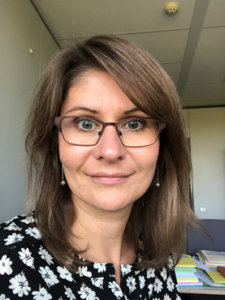 Denisa Perrin is an economist by training and over past 16 years she has been working for the European Commission in Brussels in the area of Cohesion policy. Currently, she leads a team responsible for smart specialisation and policy development of the Cohesion policy support to R&I. She focuses on conceptual issues related to innovation-led placed based policy with particular attention on developing of R&I capacities in less developed regions with the objective to address the innovation divide. Recently, she led a pilot action related to industrial transition in European regions looking for ways how to manage this transition process. Denisa previously occupied different positions in the Directorate-General for Regional and Urban Policy – she was involved in negotiation and implementation of Structural Funds programmes in a number of Member States, such as Czech Republic and France. She also worked on strengthening administrative capacity and public administration reforms across Europe.
Denisa Perrin is an economist by training and over past 16 years she has been working for the European Commission in Brussels in the area of Cohesion policy. Currently, she leads a team responsible for smart specialisation and policy development of the Cohesion policy support to R&I. She focuses on conceptual issues related to innovation-led placed based policy with particular attention on developing of R&I capacities in less developed regions with the objective to address the innovation divide. Recently, she led a pilot action related to industrial transition in European regions looking for ways how to manage this transition process. Denisa previously occupied different positions in the Directorate-General for Regional and Urban Policy – she was involved in negotiation and implementation of Structural Funds programmes in a number of Member States, such as Czech Republic and France. She also worked on strengthening administrative capacity and public administration reforms across Europe.
Apostolia Karamali (Head of Unit, Academic Research and Innovation, DG Research and Innovation, European Commission)
 Apostolia Karamali is the head of the Academic R&I and Research Organisations unit at the Directorate-General for Research and Innovation of the European Commission. The unit designs, implements, and monitors policy initiatives in support of higher education institutions, research organisations and researchers, as part of the European Research Area (ERA), and empowers them to deliver the transformative and systemic changes that boost the long-term competitiveness, attractiveness, and impact of Europe's R&I system.
Apostolia Karamali is the head of the Academic R&I and Research Organisations unit at the Directorate-General for Research and Innovation of the European Commission. The unit designs, implements, and monitors policy initiatives in support of higher education institutions, research organisations and researchers, as part of the European Research Area (ERA), and empowers them to deliver the transformative and systemic changes that boost the long-term competitiveness, attractiveness, and impact of Europe's R&I system.
Paulo Jorge Ferreira (Rector, University of Aveiro, Portugal)
 Paulo Jorge Ferreira is Rector of the University of Aveiro since 2018. Paulo Ferreira is a Professor at the Department of Electronics, Telecommunications and Informatics of the University of Aveiro, where he was director between February 2015 and February 2018. He has management experience in department positions, course management, as well as in scientific commissions and in evaluation commissions. His research activity resulted in some national and international patents. Besides the IBM Scientific Award received in 1993, working on his PhD thesis (Study and Unification of a Class of Sampling, Interpolation and Extrapolation), he collaborated or was responsible for several research projects with national and international teams.
Paulo Jorge Ferreira is Rector of the University of Aveiro since 2018. Paulo Ferreira is a Professor at the Department of Electronics, Telecommunications and Informatics of the University of Aveiro, where he was director between February 2015 and February 2018. He has management experience in department positions, course management, as well as in scientific commissions and in evaluation commissions. His research activity resulted in some national and international patents. Besides the IBM Scientific Award received in 1993, working on his PhD thesis (Study and Unification of a Class of Sampling, Interpolation and Extrapolation), he collaborated or was responsible for several research projects with national and international teams.
Presenters:
Gerwin Evers (Technopolis Group, The Netherlands)
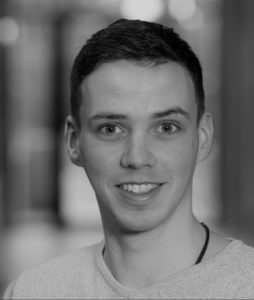 Dr. Gerwin Evers works as a science and innovation policy consultant at Technopolis Group in Amsterdam. Within this field, he has a special interest in the role of universities in science and innovation policy. Gerwin takes a systemic perspective and focuses on mapping system dynamics through the implementation of a wide range of quantitative methods such as bibliometrics, network analysis, webscraping, natural language processing, machine learning and surveys. At the same he also has experience with and sees the complementary value of qualitative methods, in which he has extensive experience with conducting interviews and case studies.
Dr. Gerwin Evers works as a science and innovation policy consultant at Technopolis Group in Amsterdam. Within this field, he has a special interest in the role of universities in science and innovation policy. Gerwin takes a systemic perspective and focuses on mapping system dynamics through the implementation of a wide range of quantitative methods such as bibliometrics, network analysis, webscraping, natural language processing, machine learning and surveys. At the same he also has experience with and sees the complementary value of qualitative methods, in which he has extensive experience with conducting interviews and case studies.
Prior to joining Technopolis Group, Gerwin was as PhD Fellow at Aalborg University part of the EU funded Marie-Curie Innovative Training Network that studied the Role of Universities in Regional Development and Innovation (RUNIN). Gerwin’s research during his PhD focused on understanding how universities, through their teaching activities and research collaborations (and the interaction between these two channels), can foster industrial development in their locality. Most of the studies conducted during his PhD utilised registry and Community Innovation Survey (CIS) data, while case studies, interviews and other qualitative methods also played an important role. After handing in his dissertation Gerwin worked on a project evaluating the impact of university-industry collaborations on innovation input, innovation output and performance at the firm level.
Saeed Moghadam-Saman (Western Norway University of Applied Sciences, Norway)
 Saeed was born in 1980 in Tehran, Iran, where he grew, studied and worked before leaving for Europe in 2006. He was a RUNIN research fellow at the University of Stavanger where he conducted his PhD in Innovation Studies, and his PhD topic was on ‘Intersectoral collaborations of doctoral researchers and generic skills acquisition’. Saeed has an MSc. in Industrial Management from University of Borås, Sweden, and a BSc. in Industrial Engineering from Azad University South-Tehran, Iran. Before doing his PhD studies, he has worked as consultant industrial engineer (feasibility studies and quality management systems) and seaborn logistics expert in Iran, and as researcher at the Centre for Innovation Studies, University of Economics and Management, Prague, The Czech Republic. In his earlier works as a researcher, he has participated in European Commission-funded multinational projects on knowledge-intensive entrepreneurship as well as economic underpinnings of social innovation in Europe. Currently, he works as a research fellow at the Mohn Centre for Innovation and Regional Development, Western Norway University of Applied Sciences, Bergen, Norway. In his current work he focuses on the regional governance of responsible research and innovation, as well as innovation policy for sustainable restructuring of industries in the aftermath of COVID-19 crisis.
Saeed was born in 1980 in Tehran, Iran, where he grew, studied and worked before leaving for Europe in 2006. He was a RUNIN research fellow at the University of Stavanger where he conducted his PhD in Innovation Studies, and his PhD topic was on ‘Intersectoral collaborations of doctoral researchers and generic skills acquisition’. Saeed has an MSc. in Industrial Management from University of Borås, Sweden, and a BSc. in Industrial Engineering from Azad University South-Tehran, Iran. Before doing his PhD studies, he has worked as consultant industrial engineer (feasibility studies and quality management systems) and seaborn logistics expert in Iran, and as researcher at the Centre for Innovation Studies, University of Economics and Management, Prague, The Czech Republic. In his earlier works as a researcher, he has participated in European Commission-funded multinational projects on knowledge-intensive entrepreneurship as well as economic underpinnings of social innovation in Europe. Currently, he works as a research fellow at the Mohn Centre for Innovation and Regional Development, Western Norway University of Applied Sciences, Bergen, Norway. In his current work he focuses on the regional governance of responsible research and innovation, as well as innovation policy for sustainable restructuring of industries in the aftermath of COVID-19 crisis.
Lisa Nieth (Technopolis Group Germany, Germany)
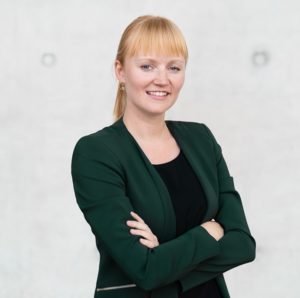 Dr Lisa Nieth is a senior consultant at Technopolis Berlin with over 6 years’ experience in the domains of innovation policy, higher education and regional development. She is a skilled researcher and project manager and has experience in developing and using a wide set of qualitative research methods, undertaking evaluations and (policy) impact assessments.
Dr Lisa Nieth is a senior consultant at Technopolis Berlin with over 6 years’ experience in the domains of innovation policy, higher education and regional development. She is a skilled researcher and project manager and has experience in developing and using a wide set of qualitative research methods, undertaking evaluations and (policy) impact assessments.
Prior to joining Technopolis, Lisa successfully finished her PhD within a Marie Curie Innovative Training Network at the University of Twente and Regio Twente. Her PhD project – conducted in the Netherlands, Portugal & Denmark – focused on the role of universities in regional innovation policies and the ways individual academics contribute to regional development processes. She has published in major journals in the related field.
Before her PhD, Lisa worked in Santiago de Chile as a project manager and consultant for innovation, start-up support and strategic partnerships. During this time, she was part of several projects for the Chilean Economic Development Agency and diverse international bodies such as the Interamerican Development Bank. Related to her interest in South America and international development, she has been working as a UN online volunteer for an NGO in Jamaica.
Liliana Maria de Almeida Fonseca (University of Aveiro, Portugal & University of Strathclyde, UK)
 Liliana Fonseca is a Research Assistant at the European Policies Research Centre of the University of Strathclyde (UK), and a PhD candidate in Public Policies at the University of Aveiro (PT). At the EPRC she has contributed to the H2020 project TRACER, supporting smart specialisation strategy design in formerly coal-intensive regions in energy transition. She has also carried out public policy research for the EoRPA, IQ-Net and NPA programmes and the NONURBAN project, leading the EPRC briefing paper on Coronavirus and the NPA.
Liliana Fonseca is a Research Assistant at the European Policies Research Centre of the University of Strathclyde (UK), and a PhD candidate in Public Policies at the University of Aveiro (PT). At the EPRC she has contributed to the H2020 project TRACER, supporting smart specialisation strategy design in formerly coal-intensive regions in energy transition. She has also carried out public policy research for the EoRPA, IQ-Net and NPA programmes and the NONURBAN project, leading the EPRC briefing paper on Coronavirus and the NPA.
Between 2017-2020 she was an Early Stage Research Fellow of the H2020 Marie Skłodowska-Curie Innovative Training Network RUNIN, in which she developed her PhD work on universities’ engagement in regional innovation policy like that of Smart Specialisation, through international cross-regional comparative research. She was awarded in 2018 the IND+I Science’s Industry and Innovation grant for her paper on “Universities in Innovation Policy-Design: a review of the participation of external actors in the policy process for the creation of public value”.
She has an MSc in Eco-Cities from Cardiff University and a BA in Political Science and International Relations from the New University of Lisbon. Her research interests focus on governance, urban and regional sustainable development and public policies.
Kwadwo Atta-Owusu (University of Stavanger, Norway)
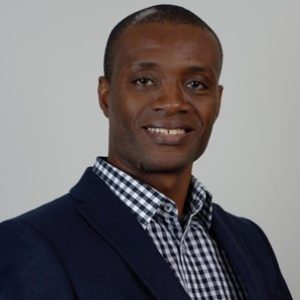 Kwadwo Atta-Owusu is Ghanaian and one of the RUNIN researchers at the University of Stavanger (UiS). He holds a MSc in International Business Management from the University of Oulu and a BSc in Business Administration from the Ghana Baptist University College. Prior to joining the RUNIN Project, he has worked as a research assistant for the HURMOS Project at the University of Oulu. He is interested in conducting interdisciplinary research and applying theories from different disciplines to new research problems. His research interests include micro-foundations of academic engagement, university-industry collaboration, and geography of knowledge creation and innovation. His PhD project investigated how individual and contextual factors influence academic engagement in regions. He is presently a research fellow at the Centre for Innovation Research (CIR) at the UiS Business School.
Kwadwo Atta-Owusu is Ghanaian and one of the RUNIN researchers at the University of Stavanger (UiS). He holds a MSc in International Business Management from the University of Oulu and a BSc in Business Administration from the Ghana Baptist University College. Prior to joining the RUNIN Project, he has worked as a research assistant for the HURMOS Project at the University of Oulu. He is interested in conducting interdisciplinary research and applying theories from different disciplines to new research problems. His research interests include micro-foundations of academic engagement, university-industry collaboration, and geography of knowledge creation and innovation. His PhD project investigated how individual and contextual factors influence academic engagement in regions. He is presently a research fellow at the Centre for Innovation Research (CIR) at the UiS Business School.
Sergio Andrés Manrique Garzón (Universitat Autònoma de Barcelona & SDG Group Iberia, Spain)
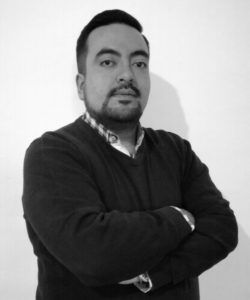 Sergio Andrés Manrique Garzón is a Data & Analytics Project Manager/Analyst (SDG Group Iberia) and PhD candidate in Economics, Management and Organization (UAB – RUNIN Project). PhD thesis: “Assessing the Impact of University-Firm Collaboration on Firm Performance and Regional Development”. Colombian-Spanish Industrial Engineer, specialised in Managerial and Organizational Control Systems, and MSc in Management, Organization and Business Economics. Certified Professional Scrum Master and Lean Six-Sigma Green Belt. 7+ years of work experience as researcher and analyst/project manager at both academia and private sectors in Colombia and Spain. Knowledge and research interest in innovation, business economics and regional development.
Sergio Andrés Manrique Garzón is a Data & Analytics Project Manager/Analyst (SDG Group Iberia) and PhD candidate in Economics, Management and Organization (UAB – RUNIN Project). PhD thesis: “Assessing the Impact of University-Firm Collaboration on Firm Performance and Regional Development”. Colombian-Spanish Industrial Engineer, specialised in Managerial and Organizational Control Systems, and MSc in Management, Organization and Business Economics. Certified Professional Scrum Master and Lean Six-Sigma Green Belt. 7+ years of work experience as researcher and analyst/project manager at both academia and private sectors in Colombia and Spain. Knowledge and research interest in innovation, business economics and regional development.
